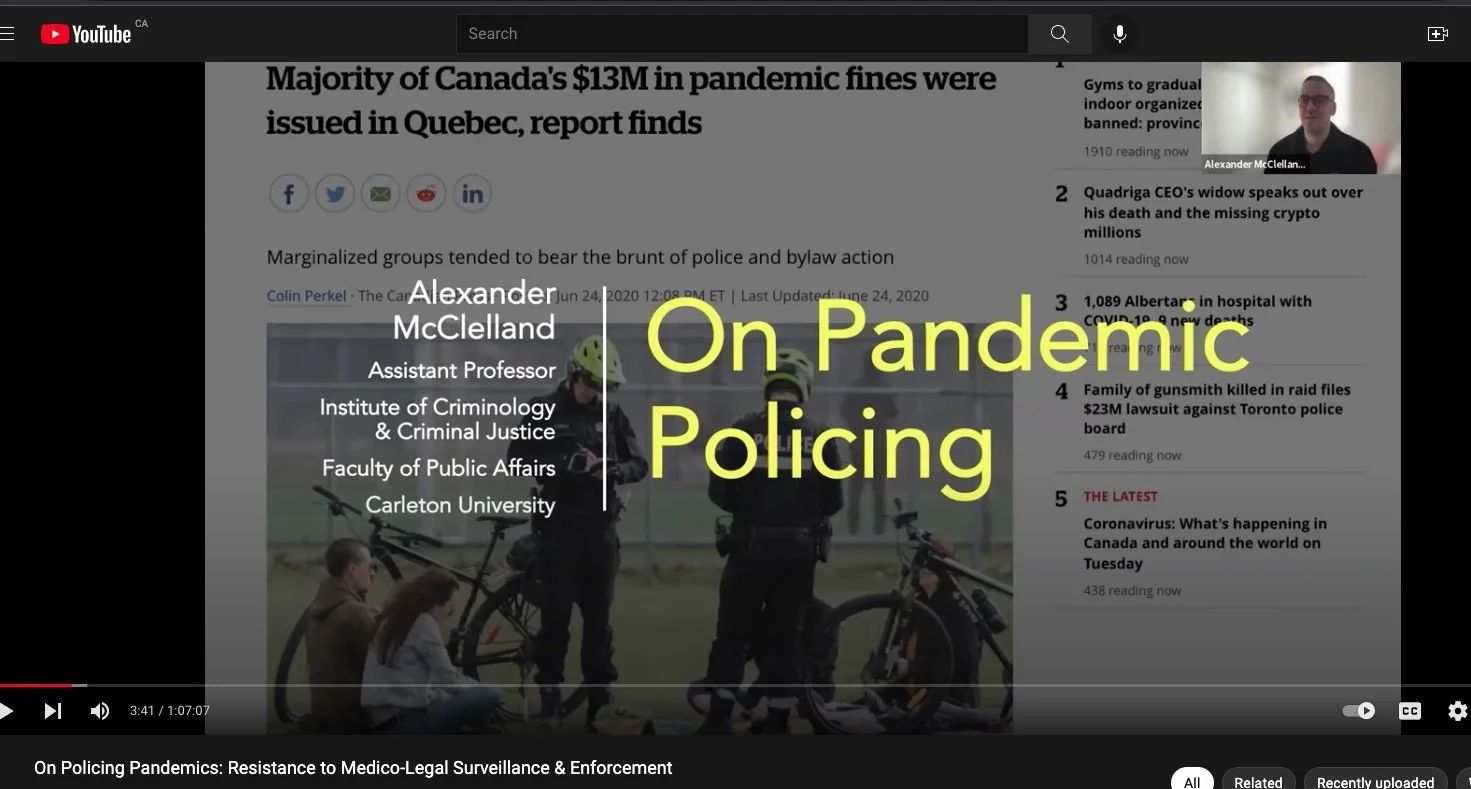A recent feature by journalist Zosia Bielski examines the work of the Canadian Coalition to Reform HIV Criminalization calling for Criminal Code reform to address the harms of HIV criminalization, which includes a reference to my work, and forthcoming book, see the below excerpt:
“For HIV-positive people, the prosecutions can be catastrophic.
Alexander McClelland, an assistant professor at the Institute of Criminology and Criminal Justice at Carleton University, spent time with people prosecuted for his forthcoming book, Criminalized Lives: HIV and Legal Violence.
The stories are disturbing: One man recalled being interrogated and beaten by police; another woman spoke of being locked in solitary confinement, naked. Others were vilified as HIV-positive “rapists” by prison guards, then brutalized by inmates. Some were denied HIV medication while incarcerated, growing seriously ill.
“The criminalization haunts every aspect of their lives,” said Prof. McClelland, chair of the coalition’s steering committee.
With their names broadcast through news stories and public safety warnings issued by police, many become alienated from family and friends. Others encounter employers unwilling to hire them and landlords refusing to rent to them, Prof. McClelland found.
“It isolates them in their community, where they face daily forms of harassment and violence,” he said. “These conditions ruin people’s lives.”
Read the complete article here!





















